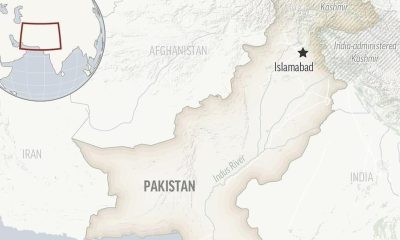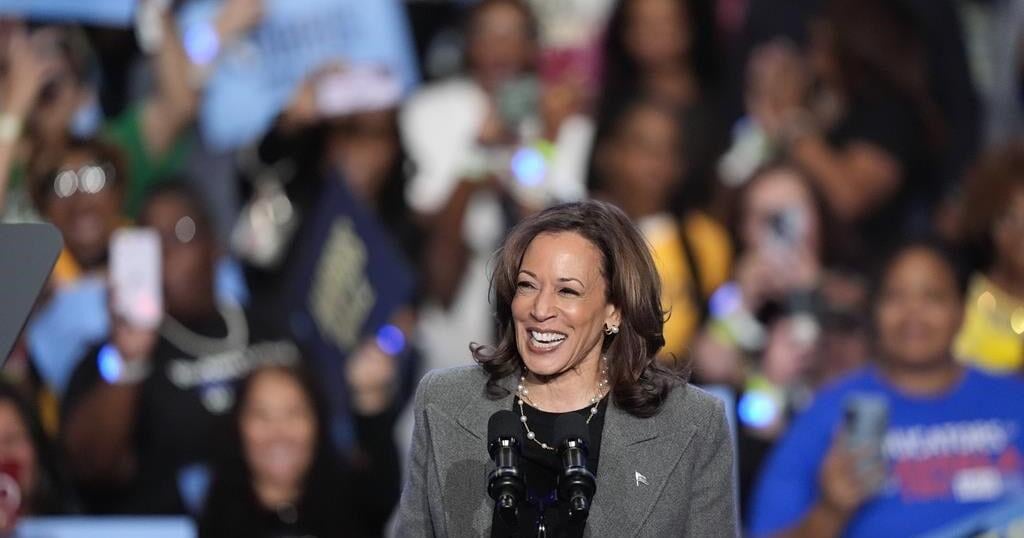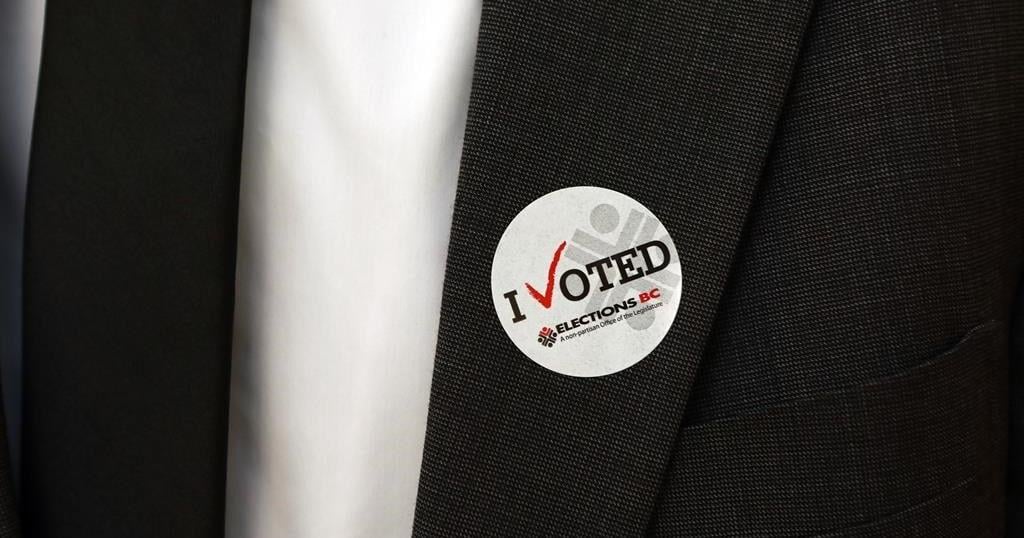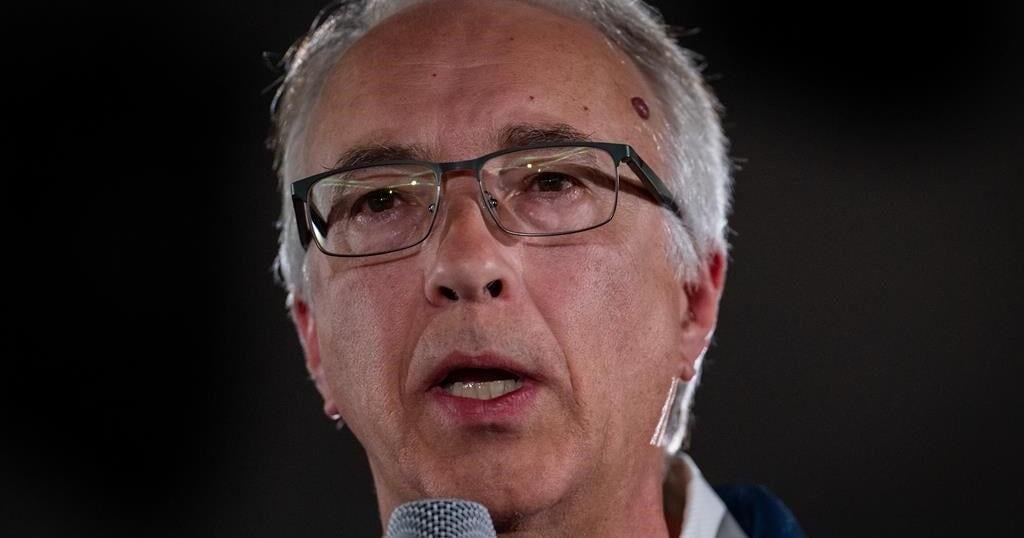STONECREST, Ga. (AP) — Kamala Harris told the congregation of a large Black church in suburban Atlanta on Sunday that people must show compassion and respect in their daily lives and do more than just “preach the values.”
The Democratic presidential nominee’s visit to New Birth Missionary Baptist Church in Stonecrest on her 60th birthday, marked by a song by the congregation, was part of a broad, nationwide campaign, known as “Souls to the Polls,” that encourages Black churchgoers to vote.
Pastor Jamal Bryant said the vice president was “an American hero, the voice of the future” and “our fearless leader.” He also used his sermon to welcome the idea of America electing a woman for the first time as president. “It takes a real man to support a real woman,” Bryant said.
“When Black women roll up their sleeves, then society has got to change,” the pastor said.
Harris told the parable of the Good Samaritan from the Gospel of Luke, about a man who was traveling from Jerusalem to Jericho and was attacked by robbers. The traveler was beaten and left bloodied, but helped by a stranger.
All faiths promote the idea of loving thy neighbor, Harris said, but far harder to achieve is truly loving a stranger as if that person were a neighbor.
“In this moment, across our nation, what we do see are some who try to deepen division among us, spread hate, sow fear and cause chaos,” Harris told the congregation. “The true measure of the strength of a leader is based on who you lift up.”
She was more somber than during her political rallies, stressing that real faith means defending humanity. She said the Samaritan parable reminds people that “it is not enough to preach the values of compassion and respect. We must live them.”
Harris ended by saying, “Weeping may endure for a night, but joy cometh in the morning,” as attendees applauded her.
Many in attendance wore pink to promote breast cancer awareness. Also on hand was Opal Lee, an activist in the movement to make Juneteenth a federally recognized holiday. Harris hugged her.
The vice president also has a midday stop at Divine Faith Ministries International in Jonesboro with singer Stevie Wonder, before taping an interview with the Rev. Al Sharpton that will air later Sunday on MSNBC. The schedule reflects her campaign’s push to treat every voting group like a swing state voter, trying to appeal to them all in a tightly contested election with early voting in progress.
Harris’ running mate, Minnesota Gov. Tim Walz, headed to church in Saginaw, Michigan, and his wife, Gwen, was going to a service in Las Vegas.
The “Souls to the Polls” effort launched last week and is led by the National Advisory Board of Black Faith Leaders, which is sending representatives across battleground states as early voting begins in the Nov. 5 election.
“My father used to say, a ‘voteless people is a powerless people’ and one of the most important steps we can take is that short step to the ballot box,” Martin Luther King III said Friday. “When Black voters are organized and engaged, we have the power to shift the trajectory of this nation.”
On Saturday, the vice president rallied supporters in Detroit with singer Lizzo before traveling to Atlanta to focus on abortion rights, highlighting the death of a Georgia mother amid the state’s restrictive abortion laws that took effect after the U.S. Supreme Court, with three justices nominated by Donald Trump, overturned Roe v. Wade.
And after her Sunday push, she will campaign with former U.S. Rep. Liz Cheney, R-Wyo., in the suburbs of Pennsylvania, Michigan, and Wisconsin.
“Donald Trump still refuses to take accountability, to take any accountability, for the pain and the suffering he has caused,” Harris said.
Harris is a Baptist whose husband, Doug Emhoff, is Jewish. She has said she’s inspired by the work of the Rev. Martin Luther King Jr., and influenced by the religious traditions of her mother’s native India as well as the Black Church. Harris sang in the choir as a child at Twenty Third Avenue Church of God in Oakland.
“Souls to the Polls” as an idea traces back to the Civil Rights Movement. The Rev. George Lee, a Black entrepreneur from Mississippi, was killed by white supremacists in 1955 after he helped nearly 100 Black residents register to vote in the town of Belzoni. The cemetery where Lee is buried has served as a polling place.
Black church congregations across the country have undertaken get-out-the-vote campaigns for years. In part to counteract voter suppression tactics that date back to the Jim Crow era, early voting in the Black community is stressed from pulpits nearly as much as it is by candidates.
In Georgia, early voting began on Tuesday, and more than 310,000 people voted on that day, more than doubling the first-day total in 2020. A record 5 million people voted in the 2020 presidential election in Georgia.
___
This story has been corrected to reflect that the mobilization effort launched last week, not Oct. 20.

































